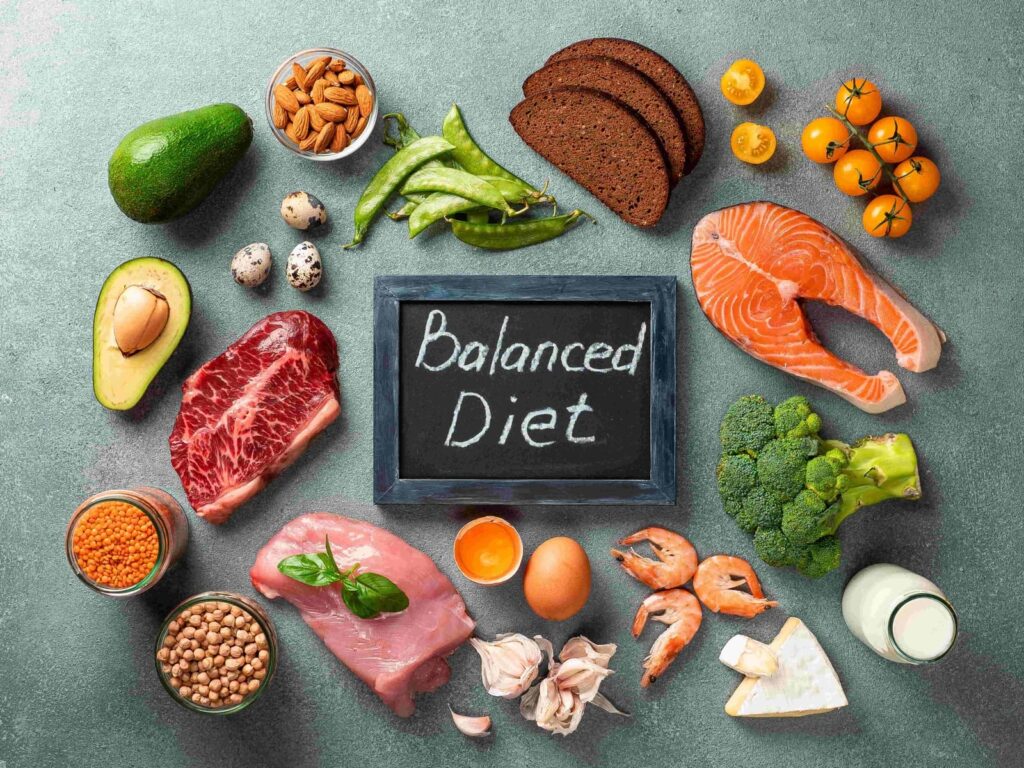
Craving for a protein-packed, versatile meal that’s both delicious and nutritious? Imagine a scenario in which every bite of food nourishes your physical body and your aspirations.
Here, we present the world of chicken, a staple food that is both nutritious and incredibly diverse in cooking.
From the busy streets of New York to the tranquil countryside of Kerala, chicken has been enjoyed around the globe for centuries, satisfying taste buds and replenishing stomachs. From delicious curries to crispy stir-fries, this adaptable protein powerhouse has earned a spot in a myriad of cuisines.
Chicken has several advantages, including high protein content and a wealth of vitamins and minerals, which make it a valuable addition to your diet.
Let’s read more about the health benefits of eating chicken in this blog. It might persuade you to incorporate it into your meals.
Is Chicken Good for Health?
Chicken, renowned for its mild flavor and versatility, is one of the most widely consumed meats globally. Its nutritional value, characterized by a low-fat, high-protein content, makes chicken a beneficial choice for health-conscious individuals.
Lean cuts of chicken, such as breasts, are nutritionally sound because they combine low fat and high protein. They also contain elements, including phosphorus, selenium, vitamins B6 and B12, and amino acids.
Nutritional Value of Chicken
While the health benefits of chicken are well-documented; nevertheless, the culinary techniques employed can significantly influence the nutritional value of chicken-based dishes. The calorie content of darker cuts like the chicken drumstick and thigh is higher than that of lighter cuts like the breast. Saturated fat is added when you fry chicken or keep the skin on it.
Among its numerous health benefits, chicken may help maintain weight and increase muscle mass when consumed in a balanced diet.
It is important to choose breast meat over chicken drumsticks or thigh portions to get the most nutritional value out of your chicken. For example, an 85-gram portion of chicken breast has the following nutritional value:
- 122 calories
- 3 grams of fat
- 24 grams of protein
- Zero grams of carbohydrates
- 9% of the DV is riboflavin
- Potassium: 5% of DV
- Thymine: 6% of the DV
- 51% of the Daily Value (DV) for niacin
- Vitamin B12 is 10% of the DV
- 17% of the DV is phosphorus.
- Vitamin B6 is 16% of the DV
- 7% of the Daily Value of Zinc
- 36% of the DV is selenium
- 4% of the DV is copper
Therefore, incorporating chicken into your meals will contribute significantly to maintaining optimal health and fitness.
7 Key Health Benefits of Chicken
Chicken is a versatile and nutritious protein source with numerous health benefits. It is low in calories yet high in protein, making it an excellent choice for weight management.
While you may already be aware of the nutritional advantages of chicken, you might still be considering whether to include it in your diet. The following details will offer a thorough overview of chicken, highlighting its nutritional value and its positive impact on overall health:
- Supports growth of muscle and bones
Amino acids are abundant in chicken’s lean protein. The body uses amino acids to create muscular tissue, which is particularly crucial as we age.
A handful of studies have shown that eating more protein helps to preserve bone mineral density. So, consuming chicken can help promote healthier bones and stronger muscles, which reduces the chance of fractures and conditions like osteoporosis.
- Promote heart health and weight loss
As per the research, consuming 25–30 grams of protein in each meal can help us feel fuller. Meals high in protein can help us feel fulfilled even when we eat less, which promotes healthier weight management.
Healthy weights improve risk factors for cardiac issues, such as high blood pressure and excessive triglyceride levels. Therefore, chicken, rich in protein, can help control weight and reduce the risk of heart disease.
- Improve brain development and function
Chickens have a fair amount of vitamin B12 and are a significant source of choline. These two nutrients are crucial for the development and function of the brain.
Nearly 90%-95% of pregnant women are thought to not get enough choline in their diets each day. Low choline levels during pregnancy may be associated with neural tube abnormalities, although the evidence is sparse and contradictory. On the other hand, newborns that consume more choline during pregnancy seem to benefit cognitively.
Similarly, increased consumption of choline may also protect older adults from cognitive impairment. However, low vitamin B12 levels maximize the risk of stunted growth, impaired psychomotor function, and impaired brain development in infants, which may not be reversible.
- Elevate skin and joint health
One excellent source of dietary collagen is Chicken. Collagen from chickens’ skin, bones, and feet is used to make many collagen supplements. However, collagen production lowers with age, which can result in wrinkles, joint pain, and muscular weakness.
Research has shown that collagen from chickens may help reduce stiffness and soreness. According to animal studies, hen collagen may also help prevent skin aging.
If you wish to reap the potential benefits of chicken collagen, it is essential to eat cuts with the skin on. You can also boil the leftover skin and bones from a whole chicken to make collagen-rich bone broth.
- Boosts moods
Tryptophan, an amino acid in chicken, is connected to increased brain serotonin levels, also known as the “feel good” hormone. Chicken doesn’t include enough tryptophan to make you feel happy right away, but when combined with other ingredients, research suggests it may help raise serotonin levels.
- Supports vision
Chicken contains Vitamin A and other nutrients necessary for healthy eyes. Eating chicken improves vision and fights age-related eye disorders, including cataracts and macular degeneration.
- Builds up the immune system
Zinc and selenium are two of the most essential nutrients found in chicken that might strengthen immunity. Eating chicken improves defenses against illnesses and infections by bolstering the immune system.
How can you add chicken to your diet?
Given the well-known health benefits of consuming chicken, it’s now time to explore how you can incorporate chicken for a healthy diet. Here we present you several innovative ways that would help you to include chicken in your meals:
- Chicken sandwich
- Chicken soup
- Chicken salad
- Chicken curry with less spices
- Chicken stir-fry with no oil or significantly less oil
The Bottom Line
Many essential nutrients beneficial to your health can be found in chicken. But instead of deep-frying, selecting healthier chicken varieties and cooking them using techniques like baking, grilling, steaming, or stir-frying is crucial. Thus, remember to include chicken and a range of other healthy, high-protein meals in a balanced diet.


